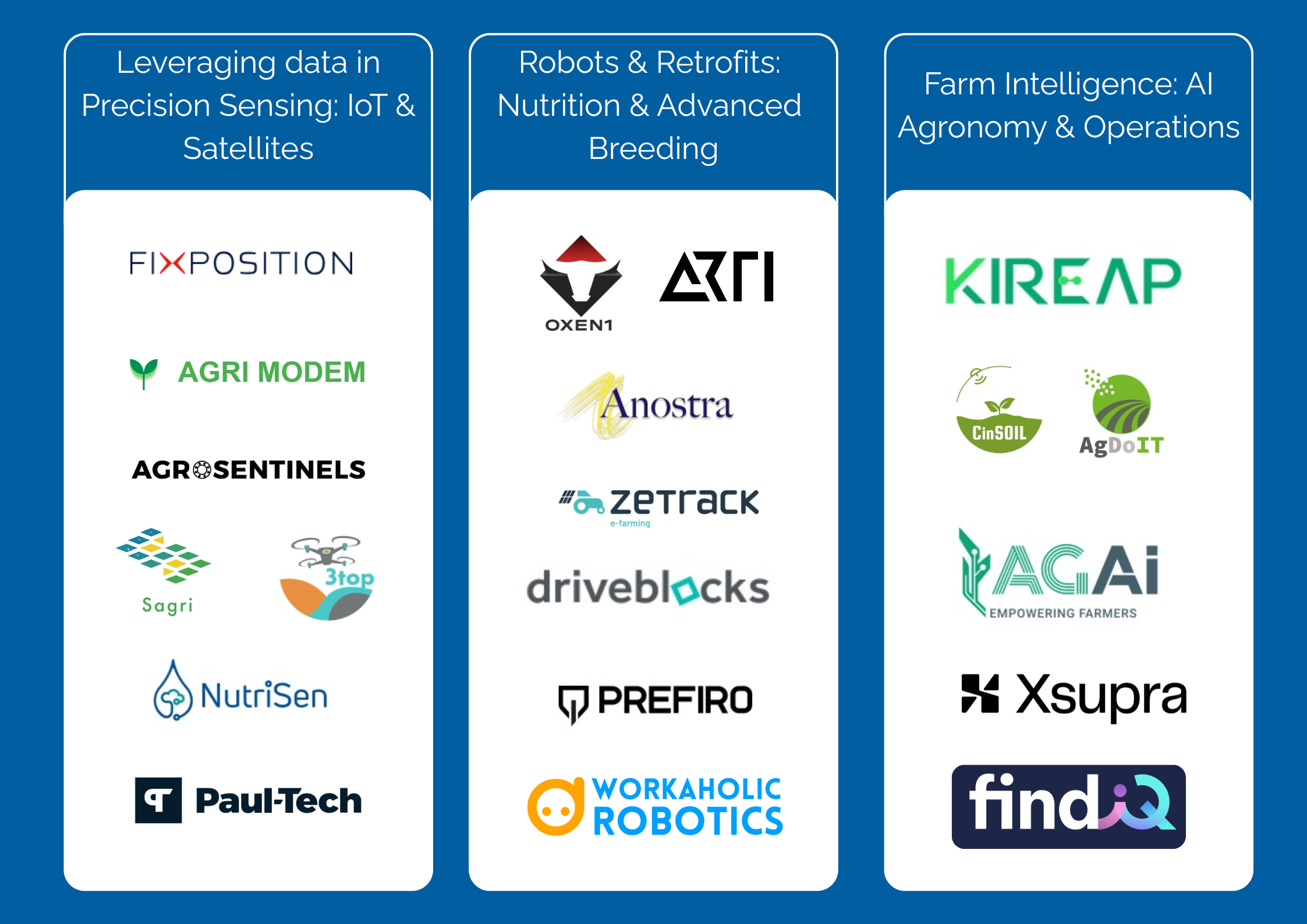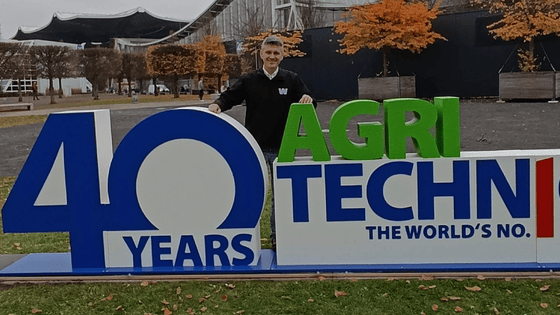As part of the Desafía AgTech Germany program, RootCamp is supporting Néboda Farms in establishing its presence in the German market. The Spanish startup combines engineering and automation expertise to make vertical farming both efficient and profitable. In this interview, Néboda shares insights into its technology, its approach to sustainable indoor cultivation, and its plans for expansion into Germany.

What’s the founding story behind Néboda Farms and what problem made you say, “we can do this better”?
Néboda Farms S.L. was officially established in 2019, stemming from an idea conceived after co-founders Iván García (CEO) and Roberto Estévez (COO) recognized a unique opportunity for technological hybridization. The foundational concept emerged from Iván's early exposure to hydroponics in 2012 and 2015.
Together we are bringing extensive high-level experience from the highly competitive and automated automotive sector. Iván as a robotics coordinator for multinational factory industrialization, and Roberto as an expert in lean methodology and continuous process improvement. We identified that while vertical agriculture offered resilience against climate change and had the potential to attract new generations to farming, the industry remained largely unprofitable due to its low level of industrialization and inefficient process automation and control.
By applying their engineering and automation expertise to indoor cultivation, Néboda set out to overcome these fundamental bottlenecks and transform the production of high-value fresh vegetables into a model that is both sustainable and financially viable.
You grow plants in fully controlled enviroments. What does that process look like in practice?
The process begins with comprehensive monitoring and control of all abiotic parameters including temperature, humidity, and atmospheric CO₂ concentration to ensure optimal values are maintained throughout the entire crop cycle. Néboda achieves high energy efficiency by maintaining full control over lighting, customizing the photoperiod, intensity, and even the light spectrum to meet the precise requirements of each plant variety.
Rather than relying on commercial nutrient formulas, the company designs highly specific nutrient solutions using individual inorganic salts, allowing complete customization based on each plant’s developmental stage. This nutrition is monitored at the ionic level in real time, enabling immediate adjustments to maintain balance, maximize nutrient efficiency, and significantly reduce waste. An additional innovation is the integration of CO₂ capture technology from the startup Skytree, which extracts CO₂ directly from the atmosphere and injects it into the cultivation system to boost plant yield.Through this exhaustive level of control, Néboda can produce truly “on-demand” foods.
How have you optimized your system to minimize resource use and what sets you apart from other vertical farming startups?
Néboda’s system is meticulously optimized for environmental sustainability, achieving over a 90% reduction in water and fertilizer consumption compared to traditional field agriculture. This is made possible through the continuous recirculation of irrigation water and customized nutrient planning. What sets Néboda apart from other vertical farming startups is its proprietary technology, designed and used exclusively by its internal team and protected as an industrial secret rather than through patents.
At the core of this innovation is an automated handling robot that transfers cultivation trays between the growing area and the harvest zone. This automation eliminates the need for human intervention within the growing area, drastically reducing the risk of contamination and thereby removing the need for pesticides or herbicides. Additionally, the robot employs artificial vision to remotely monitor phytosanitary conditions and estimate plant biomass and yield, accelerating crop optimization.
This unique level of automation minimizes direct labor costs, a critical factor ensuring superior profitability and enabling Néboda to achieve price parity with traditional agriculture while delivering a product of significantly higher quality.
Néboda initially focused on the HORECA sector (hotels, restaurants, and catering) primarily due to the limited size of its early cultivation facilities prior to scaling up to the pre-industrial level, as well as the precise and valuable feedback received from culinary professionals.
Why did you choose the HORECA sector (hotels, restaurants, and catering) as your main customer group?

While HORECA remains a strategic and foundational customer base, our indoor cultivation system ensures ultra-freshness and consistent quality year-round, independent of seasonality, qualities that are equally essential for clients in the retail sector.A practical advantage for these clients is the exceptionally long shelf life of our produce. Tests have shown that our basil can last up to 10 days, compared to the industry standard of 5–6 days. This extended shelf life reduces spoilage losses (mermas) and enables supermarkets to maintain safety stock for longer periods. With the completion of our pre-industrial scale-up in 2025 and the transition to industrial scale in 2026, our overall B2B model is expanding to serve the retail sector on a much larger scale.
Many vertical indoor farms stay local by design. Why is Germany the next step for you?
Although the philosophy of vertical farming is fundamentally local, Néboda’s proprietary system has been specifically validated and structured for seamless international scalability and replication, as indoor cultivation is entirely climate-independent.The scaling strategy involves replicating factory concepts, beginning with the first industrial-scale facility planned for 2026, which will feature at least 18 times the current capacity.
Germany represents the logical and critical next strategic step because it is the largest market in Europe for both packaged salads and aromatic herbs. This significant market size with Europe’s packaged salad segment valued at €3.7 billion and herbs at €600 million, is essential for leveraging Néboda’s B2B model and diluting the capital cost of its proprietary technology.
Furthermore, the leadership team brings extensive international experience in factory industrialization, having led projects in India, the U.S., and France. This background provides the organizational confidence required to successfully establish production facilities near major German population centers, securing a competitive advantage in one of Europe’s most promising markets.
/rootcamp_logo_white_2022.png?width=2123&height=630&name=rootcamp_logo_white_2022.png)

/RC%20logo%202022.png?width=2325&height=703&name=RC%20logo%202022.png)




